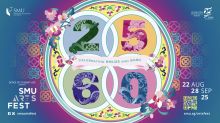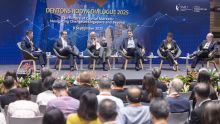Advancing partnerships and progress in international dispute resolution
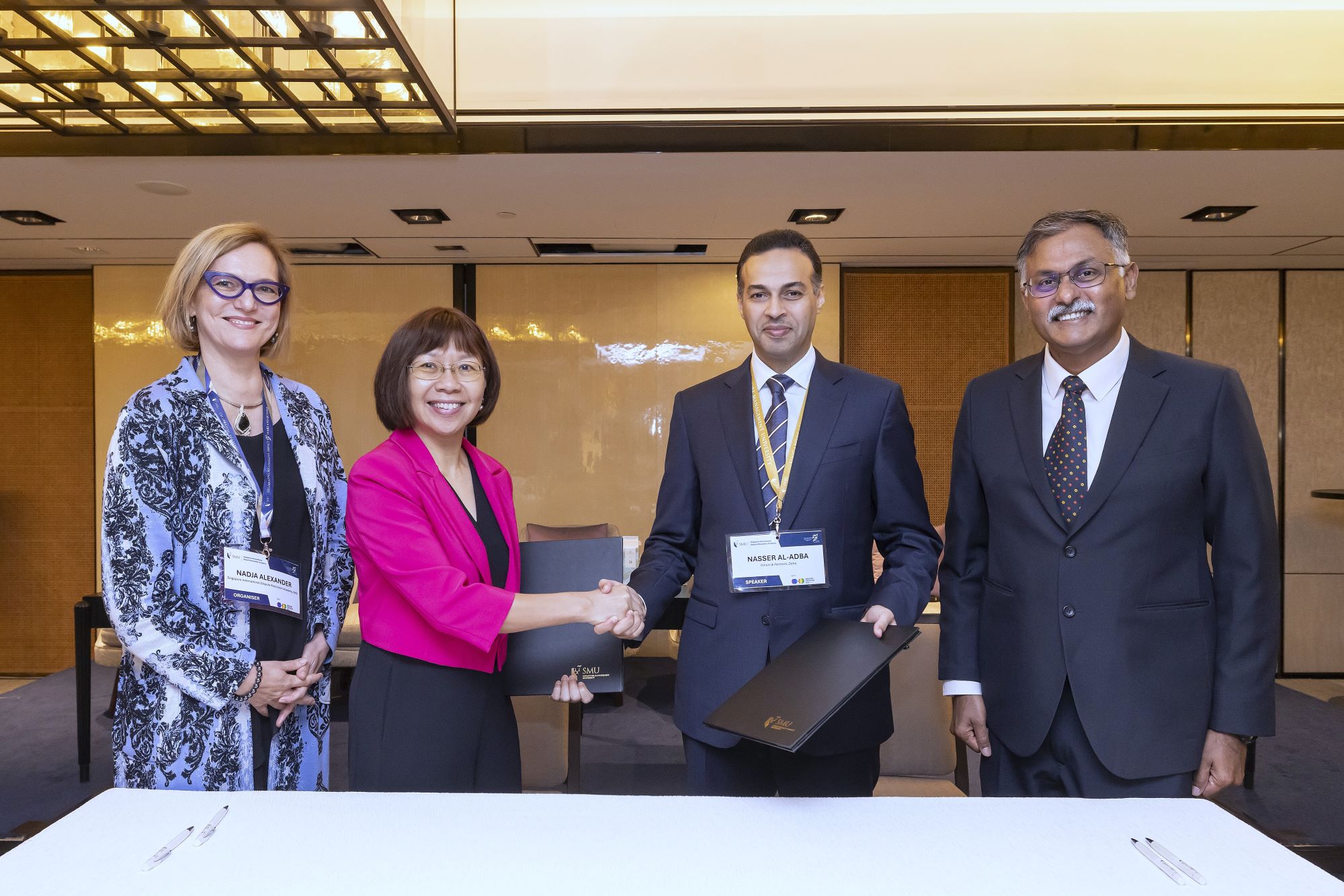
The Singapore International Dispute Resolution Academy (SIDRA), a research centre at SMU Yong Pung How School of Law, brought together legal minds from the Middle East, North Africa (MENA), and Singapore on 27 August 2025 to explore how two dynamic regions can collaborate on resolving cross-border disputes more efficiently and effectively.
Held at the Shangri-La Hotel as part of Singapore Convention Week, the forum, titled “Building Bridges in ADR: MENA Meets Singapore” marked a key milestone in SIDRA’s mission to strengthen links between global legal ecosystems.
As Singapore law firms look toward MENA for new opportunities, and MENA businesses deepen their ties with Asia, dispute resolution has become an essential part of regional cooperation. The forum aimed to illuminate differences in legal frameworks and explore practical pathways toward greater convergence.
In her welcome remarks, Professor Nadja Alexander, Director of SIDRA, highlighted the growing relevance of this collaboration, saying: “As the interest in dispute resolution continues to grow across this region, we see a real opportunity to work together with our partners in the MENA region to contribute to this development.
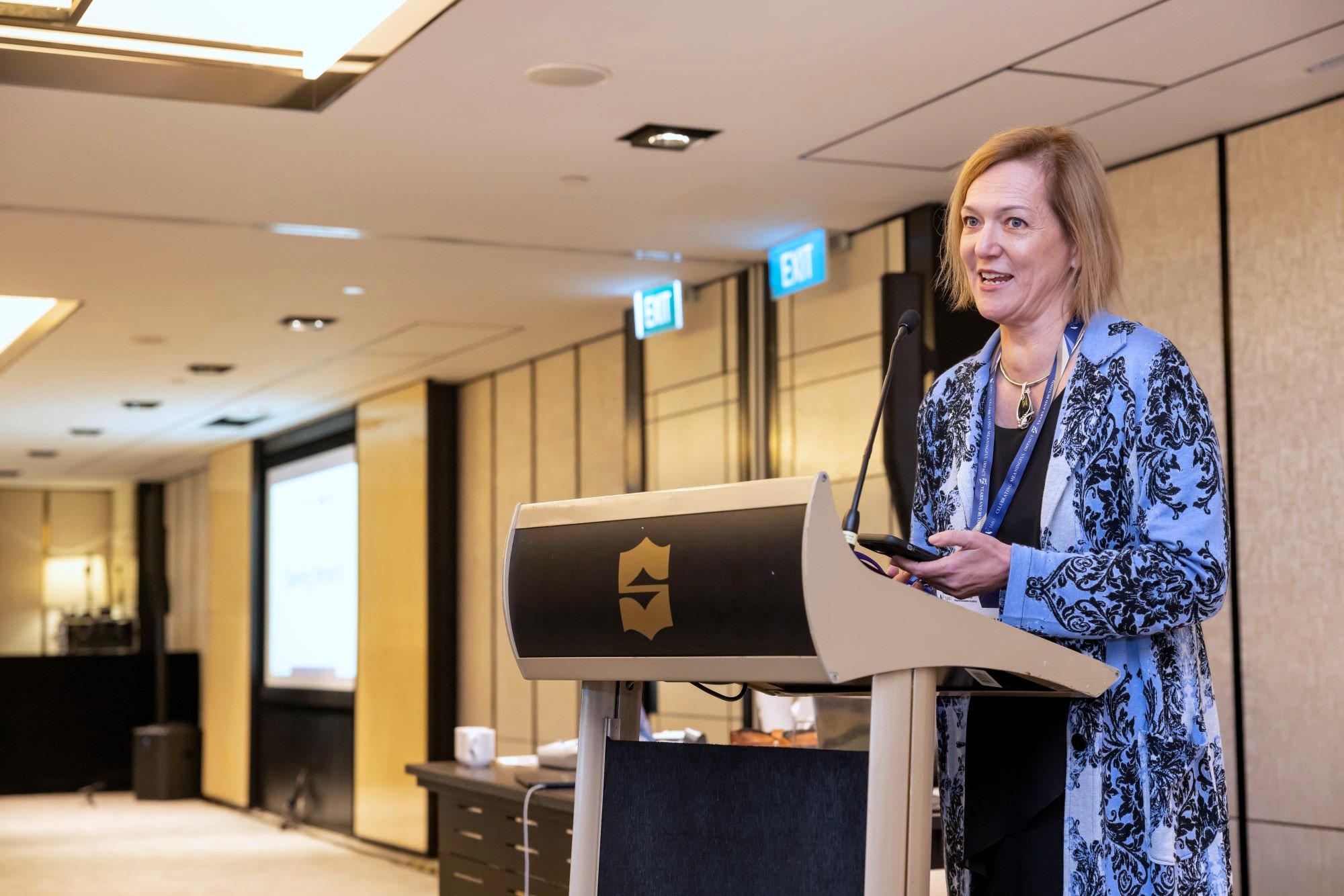
“Through data-driven insights and building on our empirical experience at SIDRA, we really are looking forward to this fresh collaborative initiative to deepen our understanding of dispute resolution, why people chose particular mechanisms and how to make it better.”
Opportunity in shared traits
Dr Emad Hussein, Senior Adviser (Middle East and North Africa) , drew parallels between the two regions’ legal evolutions.“Both have navigated complex legal traditions, both have invested in institutional excellence, understood truly that the credibility of a legal system is measured not only by its laws, but by its ability to resolve disputes in a manner that is fair, fast, and final.”
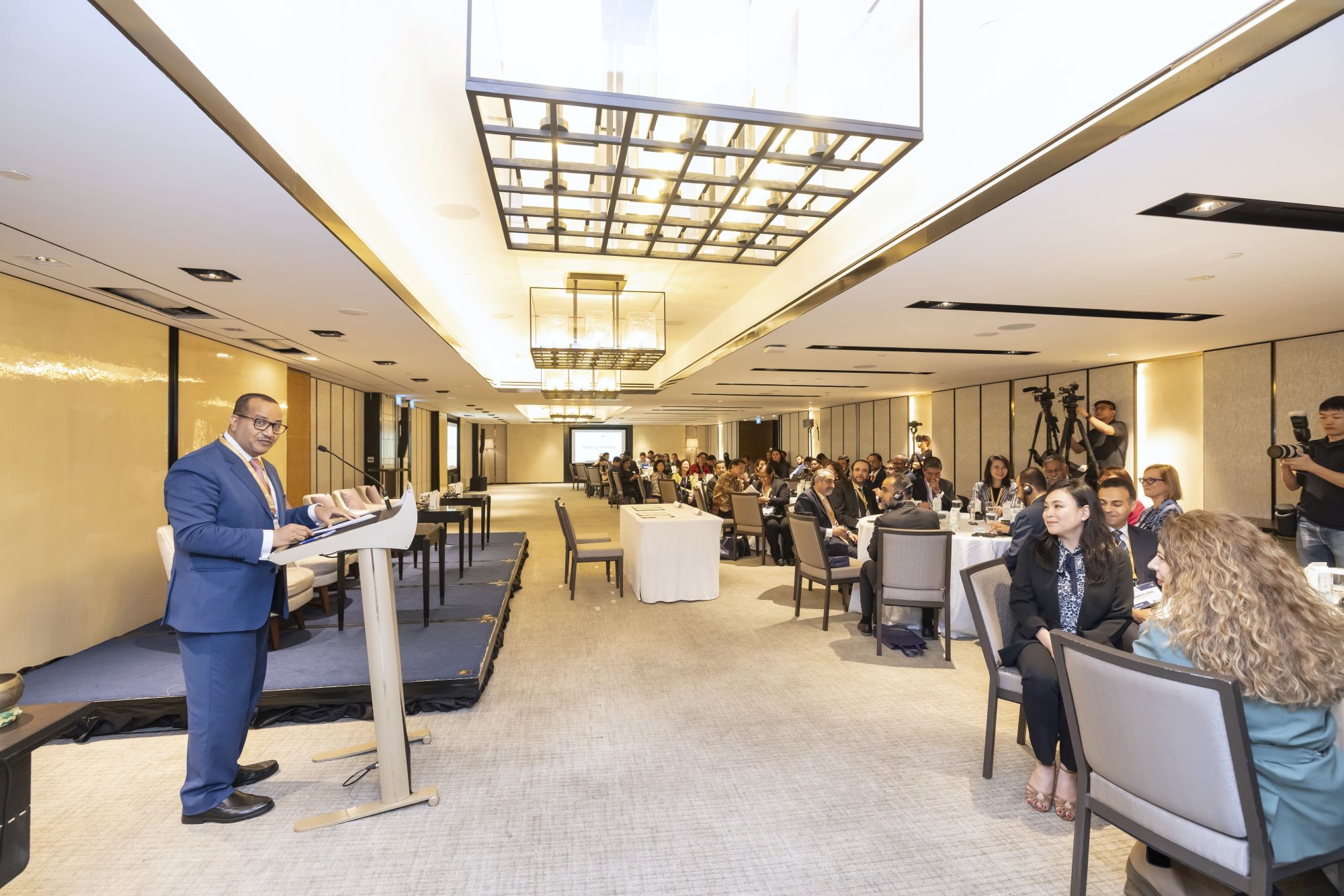
These shared traits, he added, open the door to meaningful collaboration in international dispute resolution.
In his keynote, Guest-of-Honour Mr Murali Pillai SC, Senior Minister of State, Ministry of Law and Ministry of Transport, emphasised that alternative dispute resolution (ADR) is a collective opportunity.
“The dispute resolution pie is not a zero-sum game. By collaborating with one another, we can grow the pie and increase opportunities for all,” he said, noting that ADR plays a critical role in facilitating trade between ASEAN and MENA, helping businesses access vast new markets. Singapore practitioners, he added, can support MENA firms entering Asia, while Singaporean investors in MENA benefit from local expertise and insight.
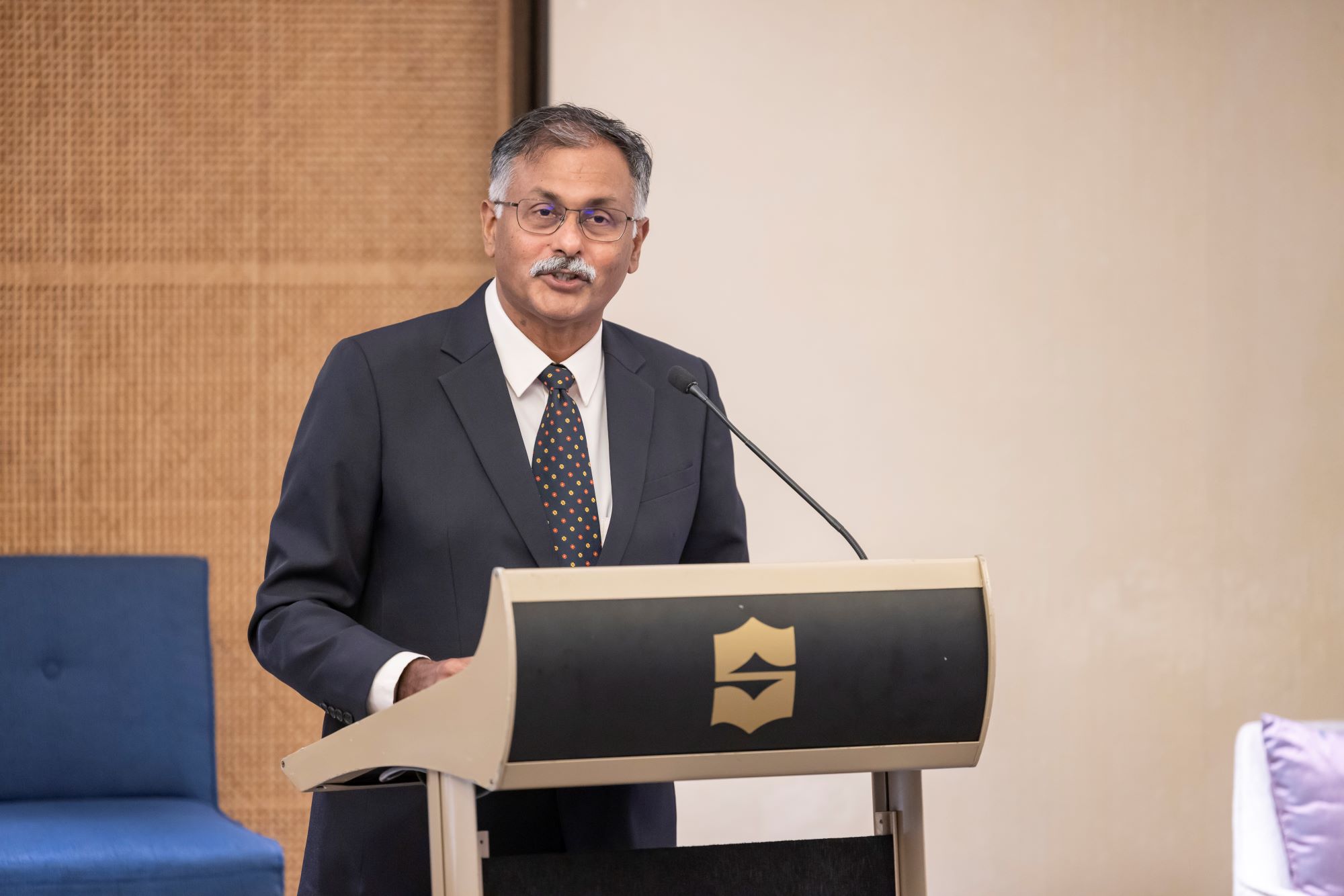
Guest of Honour Mr Murali Pillai SC, Senior Minister of State for Law and Transport.
Re-framing and contextualisation
Beyond institutional partnerships, the forum offered a platform to examine legislative, judicial, and institutional reforms shaping ADR in the MENA region. Across three expert panels, speakers explored how global frameworks such as the UNCITRAL Model Laws and the Singapore Convention on Mediation could inform regional harmonisation and reform.
The opening panel, “Building ADR Institutions in MENA”, moderated by Professor Alexander, featured:
- HE Dr Thani bin Ali Al-Thani, Vice-Chairman, Qatar International Centre for Conciliation & Arbitration
- Dr Nasser Al-Adba, Managing Partner and Head of Arbitration, Omani & Partners LLP
- Mr Hicham Zegrary, Secretary General, Casablanca International Mediation and Arbitration Centre
- Professor Marike Paulsson, Secretary General, Council International Dispute Resolution, Kingdom of Bahrain; Strategic Advisor, Dispute Resolution & Prevention, Economic Development Board, Kingdom of Bahrain
- Dr Emad Hussein, Senior Research Fellow, SIDRA
- Ms Mariam Gotsiridze, Principal Research Fellow, SIDRA
The discussion underscored MENA’s potential as a cultural and geographical bridge in global dispute resolution. Panellists called for stronger institutional ecosystems, enforcement mechanisms, and capacity-building to empower mediators and arbitrators across the region.
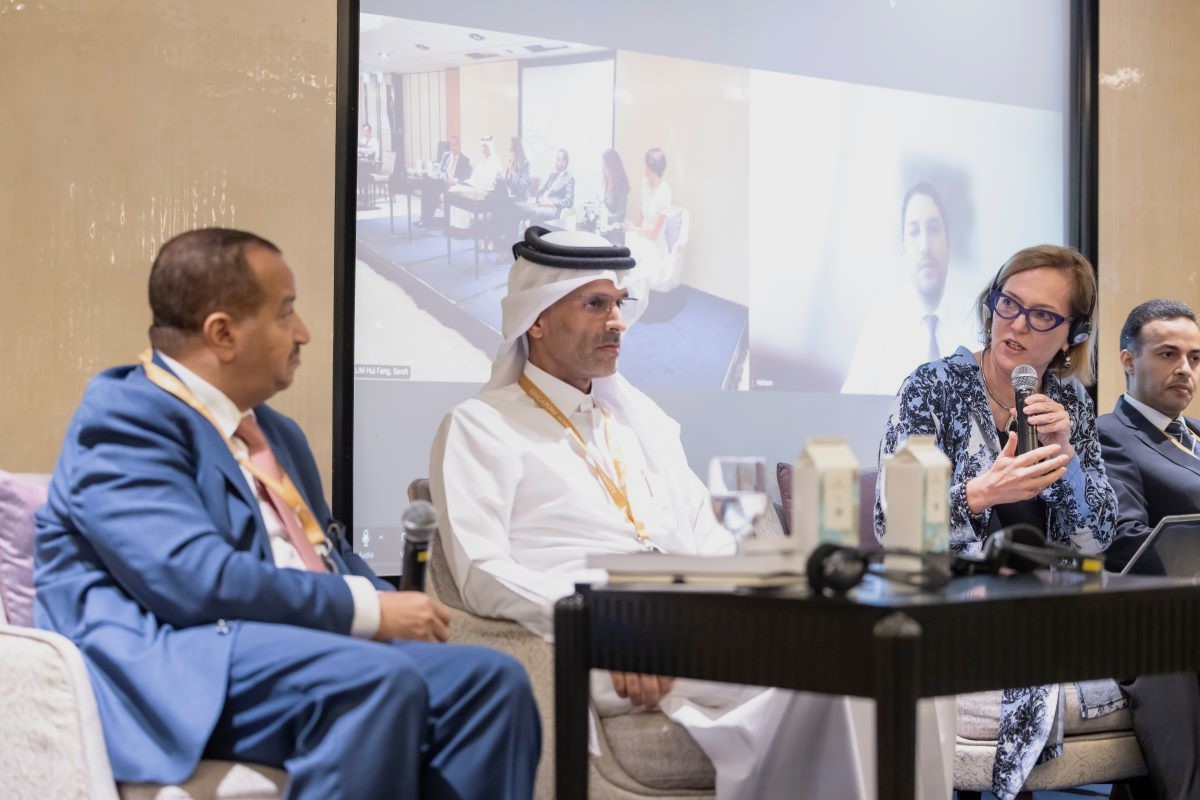
They also tackled recurring challenges — cost, duration, and enforcement — and urged a re-framing of mediation as a “win-win tool” that preserves business relationships and complements arbitration. SIDRA’s Mariam Gotsiridze noted that sound policymaking depends on data: empirical evidence should guide every reform.
A step towards cross-region collaboration
The event also witnessed the signing of a Memorandum of Understanding between SMU Yong Pung How School of Law and Omani & Partners LLP, covering seminars, workshops, joint research, and training initiatives. The partnership aims to promote knowledge exchange, best practices, and training opportunities between the two parties.
The SIDRA Forum reinforced Singapore’s position as a trusted international hub and opened new pathways for collaboration with MENA jurisdictions.
By fostering dialogue, signing new partnerships, and advancing innovation in ADR, the forum was more than a one-day exchange — it was a step toward a shared future in global dispute resolution.

